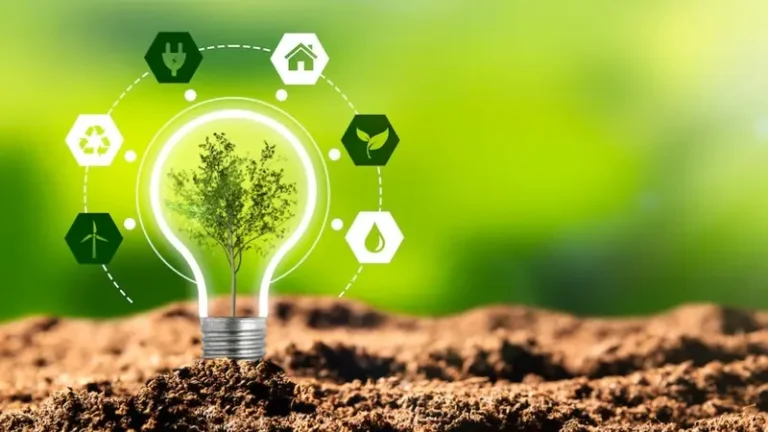Energy efficiency involves using less energy to achieve the same outcomes and reducing energy wastage. Optimizing your home’s energy efficiency is an effective way to help the environment and save on utility costs. For example, a well-insulated home can significantly decrease heating and cooling expenses, setting a solid foundation for an eco-friendlier lifestyle. Understanding what energy efficiency encompasses can drive more conscious decisions regarding home improvements.
Key Takeaways
- Discover practical tips to make your home energy-efficient.
- Learn about the benefits of energy-saving measures.
- Understand how to implement cost-effective changes.
Insulating Your Home
Adequate insulation is a highly effective method to improve your home’s energy efficiency. This is especially crucial if you’re considering properties like Oakville Houses for Sale, where energy-efficient homes can offer long-term savings. Insulation serves as a barrier that stops heat from getting out in winter and retains cool air in summer. Various materials, including fiberglass, foam, and cellulose, can provide excellent insulation options.
According to Energy Saver, good insulation can reduce a home’s energy demand by up to 30%. The insulation in the walls, roof, and floor collaborates to keep the indoor temperature stable, reducing the reliance on excessive heating or cooling. Investing in quality insulation pays off by lowering utility bills and increasing home comfort year-round.
Efficient Heating and Cooling Systems
Heating and cooling make up a large part of the energy used in homes. Thus, updating high-efficiency HVAC (Heating, Ventilation, and Air Conditioning) systems can make a substantial difference. Search for systems that have the Energy Star emblem, indicating adherence to energy-saving regulations.
Modern HVAC systems are designed for optimal performance, reducing energy usage while providing consistent temperatures throughout the home. Regular maintenance—including cleaning filters, checking for leaks, and inspecting ductwork—also ensures these systems operate efficiently, preventing them from overworking and consuming excess energy.
Energy-Efficient Appliances
Household appliances significantly contribute to daily energy consumption. Switching to energy-efficient models can result in substantial long-term savings. Modern appliances have energy ratings that help consumers identify the most efficient models. For example, switching to an Energy Star-rated refrigerator uses about 15% less energy than non-rated models.
The Energy Star program provides ratings across various appliances, including dishwashers, washing machines, and ovens. By choosing energy-efficient appliances, you reduce energy usage and typically enjoy better performance and durability. Additionally, many energy-efficient appliances come with innovative technology that allows for remote control and monitoring, further optimizing their use.
Utilizing Renewable Energy Sources
Adding renewable energy sources such as solar panels or wind turbines to your home has the potential to significantly lower both your carbon footprint and energy expenses. Solar panels, for instance, convert sunlight into electricity, offering a sustainable and cost-effective energy alternative.
Despite the initial investment, many homeowners achieve a return on their solar panel systems through reduced utility bills and potential tax incentives. The addition of solar panels can also boost property value, making it a desirable selling point for potential buyers. Unlike traditional energy sources, renewables are consistent and eco-friendly, contributing to a greener environment.
Energy-Efficient Lighting
Lighting constitutes around 10% of a home’s energy usage. Moving to energy-efficient lighting solutions, such as LED bulbs, significantly reduces this consumption. LED bulbs consume 75% less energy and have a significantly longer lifespan compared to traditional incandescent bulbs.
Over time, this transition reduces energy usage and waste, as fewer replacements are needed. Moreover, contemporary lighting options provide a variety of choices, including dimmable LEDs and smart bulbs that can be operated through smartphones, enabling improved lighting control and additional energy conservation.
Water Conservation Techniques
Heating water is another significant energy expense in households. Installing low-flow faucets and showerheads can reduce water usage without sacrificing performance. Energy-efficient water heaters are designed to use less energy while providing consistent heating, reducing utility bills. Simple practices, such as fixing leaks promptly and insulating water pipes, also contribute to water conservation.
These minor adjustments can significantly enhance overall home efficiency by ensuring that hot water is retained longer and reaches fixtures more efficiently.
Simple Behavioral Changes
Even small, daily changes can contribute to significant energy savings. Simple actions can significantly impact the situation, such as turning off lights when leaving a room, using programmable thermostats, and air-drying clothes. Encouraging family members to be mindful of their energy consumption forms conscious habits that elevate the home’s energy efficiency.
Programmable thermostats, for instance, can automatically adjust temperatures based on occupancy, ensuring that the heating or cooling systems only run when needed. Behavioral changes combined with other energy-saving measures maximize the efficiency of any home, leading to substantial long-term benefits without requiring significant investments. Visit World Fame Magazine for more details.
